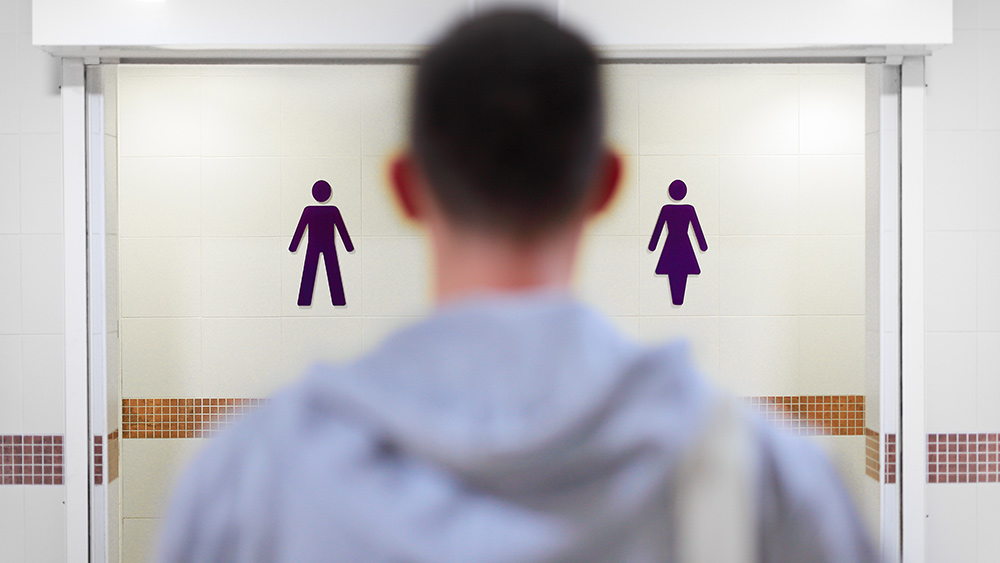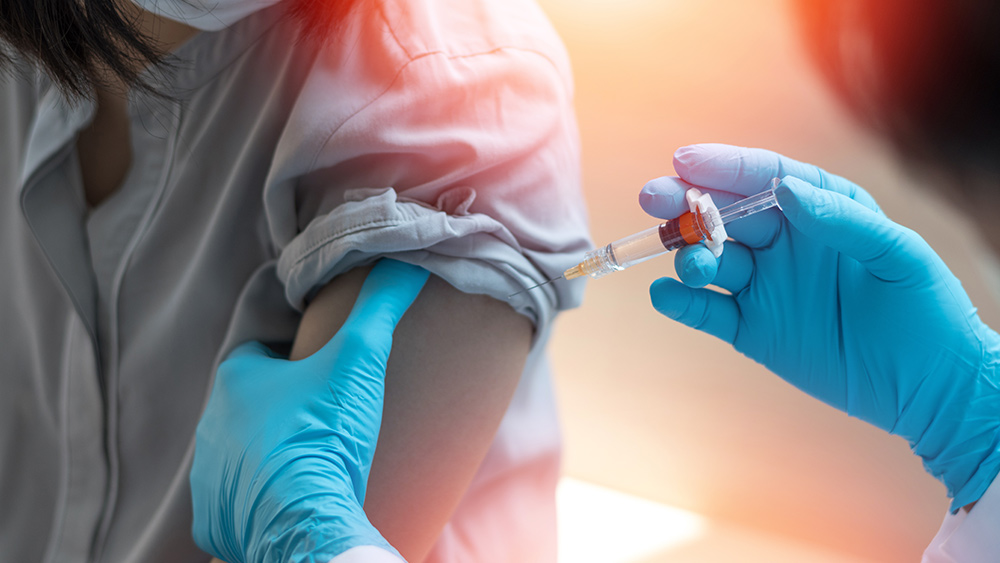Whooping cough vaccine series both ineffective and DANGEROUS, evidence shows
05/10/2023 / By Ethan Huff

The reason why whooping cough, also known as pertussis, has largely been eradicated is because of the vaccine – or is it?
The latest research shows that whooping cough was already on its way out long before the vaccine was introduced. In fact, cases of whooping cough had already been reduced by close to 99 percent before the pharmaceutical industry unleashed an injection for it in the 1940s – or in the late 1950s in England.
Between the years of 1970 and 1988, only 5-10 people died every year from whooping cough, while between 1900 and 1934 there were close to 10,000 deaths. This drastic change in whooping cough death rates would seem to be due to the introduction of the whooping cough vaccine, but the truth is that the jab was released after the death rate had already plunged to what it is today.
“Historically, the dominant and obvious fact is that most, if not all, major communicable diseases have become less serious in all developed countries for 50 years or more,” wrote Dr. Gordon T. Stewart in a 1981 report on infectious diseases.
“Whooping cough is no exception. It has behaved in this respect like measles and similarly to scarlet fever and diphtheria, in each of which at least 80% of the total decline in mortality, since records began to be kept in the United Kingdom in 1860, occurred before any vaccine or antimicrobial drugs were available and 90% or more before there was any national vaccine programme.”
(Related: The vast majority of whooping cough outbreaks, upwards of 90 percent, occur in people who got vaccinated for it.)
Whooping cough is often a factor of malnutrition, not lack of vaccination
According to another report by Dr. W.C. Rucker, who back in the early 1900s served as assistant surgeon general at the United States Public Health Service, a primary cause of whooping cough is malnutrition, not the lack of a vaccine.
While frequently complicated by inflammation of the lungs, Rucker wrote in 1911, whooping cough “is by no means uncommon in underfed children.” And usually not long afterwards in these same children comes tuberculosis of the lungs, which is triggered in part by the violent coughing with whooping cough that damages lung tissue.
“Cases of paralysis complicating whooping cough have been reported, and the changes in the eye due to haemorrhages into that organ produced by coughing have also been noted,” Rucker further wrote.
“It is thus seen that whooping cough, which is estimated killed over 10,000 American children in the year 1911, is a disease seriously affecting the public health and demanding earnest attention.”
By the time Big Pharma got involved in trying to “cure” this horrible disease, doctors and scientists, as well as the public at large, had already figured out that simply feeding children more nutrition helped to massively reduce the number of whooping cough cases all on its own.
This did not stop the pharmaceutical industry and its pals in government from getting the DTP, which is a combination diphtheria, tetanus, and pertussis, vaccine from being added to the official childhood schedule. And ever since, there have been mostly isolated whooping cough outbreaks among the vaccinated rather than the unvaccinated.
Once again, we can see from the data that another so-called vaccine does nothing to prevent an illness, and actually seems to play a direct role in making a person more susceptible to infection. And as always, the safest and best cure is to simply eat healthier and take care of yourself, which will allow your immune system to do the protecting all on its own.
The latest news about the dangers and ineffectiveness of vaccines can be found at Vaccines.news.
Sources for this article include:
Submit a correction >>
Tagged Under:
Big Pharma, pertussis, pharmaceuticals, research, vaccination, vaccine wars, vaccines, Whooping cough
This article may contain statements that reflect the opinion of the author
RECENT NEWS & ARTICLES
PharmaceuticalFraud.com is a fact-based public education website published by Pharmaceutical Fraud Features, LLC.
All content copyright © 2018 by Pharmaceutical Fraud Features, LLC.
Contact Us with Tips or Corrections
All trademarks, registered trademarks and servicemarks mentioned on this site are the property of their respective owners.



















